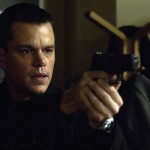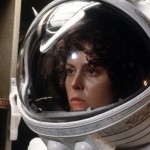The General Review
This year, I’ve seen my first Charlie Chaplin, Marx Brothers, and Buster Keaton films. First was The Gold Rush, an incredibly charming gem by Chaplin. Next was Duck Soup, which upped the ante in terms of comedy with its hilarious one-liners and musical numbers. Now that I’ve seen a Buster Keaton film, “The General,†I can at least say I’ve sampled all three brands of old school comedy. Of course, there are still plenty of other classic films by all of these legends, but I’m pleased that I can finally see how and why these comedians are so beloved after all these years. And I have to say, I think I liked Keaton’s film best of all. “The General†might not have been as laugh-out-loud funny as the other two, but it’s definitely a more polished film, primarily because it has a much more engaging plot than the others.
Keaton plays Johnny Gray, an engineer in the South during the Civil War. As the film tells us in the opening minutes, Johnny loves only two things: his train, The General, and Annabelle Lee (Marion Mack), the loveliest girl this side of the Mason-Dixon Line. When war is declared, everyone rushes out to enlist, including Johnny, but the Army deems his skills as an engineer too valuable to lose, so he is rejected. Annabelle finds this deplorable and tells Johnny she won’t speak to him again until he is wearing a Confederate uniform. Dejected, he goes back to his train, but one day, some Union officers steal The General, and Johnny goes after them in order to save the captive Annabelle and the Confederacy’s chances for victory.
“The General†is a great template for future filmmakers aspiring to make an action comedy. In other action comedies, the comedy part feels forced and the action uninspired. Here, Keaton and director Clyde Bruckman let the comedy develop naturally from the situations. This works partly because the film is silent, so no awkward one-liners can disrupt the momentum. But it also works because these people know what they are doing. The action and comedy blend seamlessly, making for a very enjoyable experience.
I was also quite taken with the music of the film. I haven’t seen many silent films, but of the few I’ve seen, I was most impressed by the way “The General†incorporated the soundtrack into the story and the comedy of the film. As the train goes, so goes the music. When it’s out of control, the music goes wild. When it slows to a halt, so does the score. And any scene that should be played for laughs is clearly distinguished.
The acting is good, but only two people really have a chance to do anything. Keaton obviously owns the film. His comedic instincts are excellent, but he doesn’t try to do too much with it. He’s also convincing as a romantic lead opposite Mack, who is also quite good in the usually thankless damsel-in-distress role. She avoids the tendency of many silent film stars to overdo it. She never gets annoying, despite the way the screenplay portrays her as a ditz.
Of the three big comedians from this time period that I described earlier, I think it’s safe to say Chaplin is the most well-known and beloved. It’s hard to disagree with that, but I’d say his gem (and most, I think, would agree that “The Gold Rush†is his gem) is lesser than that of the Marx Brothers and Buster Keaton. The Marx comedy style is vastly different than the other two, but “Duck Soup†is still tremendously enjoyable. But neither quite measures up to “The General.†It meanders a bit toward the end, but the two lengthy train chases really are as good as it gets.
















